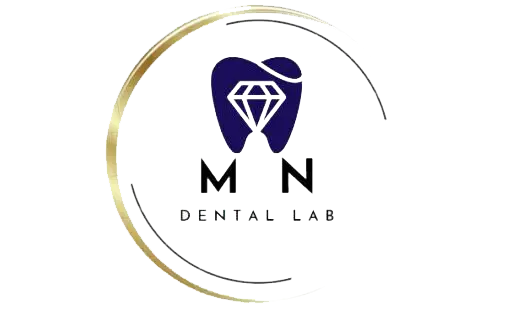Sedation Dentistry in Lake Elmo, MN
Schedule your appointment with us today!
Sedation dentistry has become an increasingly prevalent practice in Lake Elmo, MN, designed to provide a more comfortable and relaxed dental experience for patients. By using different types of sedation, ranging from mild to deep, dentists are able to alleviate patient anxiety and fear, promoting regular dental visits and overall better oral health. As we move forward, we will be discussing the various aspects of sedation dentistry, its benefits, and how it is transforming the dental industry in Lake Elmo.
Understanding Sedation Dentistry
Delving into the domain of sedation dentistry, it is essential to comprehend its purpose and process. Primarily, sedation dentistry is designed to alleviate patient anxiety and promote a calm, relaxed environment during dental procedures. The practice employs a range of sedation techniques, which will be discussed in a subsequent section, to guarantee patient comfort and ease.
Notably, a common challenge in promoting the use of sedation dentistry is dispelling the prevalent sedation myths. One such misconception is that sedation is solely for complex procedures. In reality, it can be applied to simple procedures like tooth cleaning, particularly for patients with extreme anxiety or fear of dentistry.
Moreover, another myth is that sedation is unsafe. When practiced by trained professionals and administered under controlled conditions, sedation dentistry is both safe and beneficial. Patients experience less stress, which can lead to a more positive overall dental experience and foster regular dental care habits.
Types of Dental Sedation
In the domain of sedation dentistry, various methods are utilized to guarantee patient comfort and ease of procedure. Two such methods, namely Inhaled Minimal Sedation and Deep IV Sedation, stand as prominent options in the field. These distinct types of sedation, each with their unique advantages and applications, merit in-depth discussion.
Inhaled Minimal Sedation
Commonly used in sedation dentistry, Inhaled Minimal Sedation represents one of the least invasive methods to alleviate dental anxiety. This form of sedation involves the use of nitrous oxide, also known as laughing gas. It is administered through a mask that is placed over the patient’s nose. The gas helps the patient relax, yet they remain fully conscious and able to respond to instructions from the dentist.
Inhalation techniques are essential in the administration of Inhaled Minimal Sedation. The right mix of nitrous oxide and oxygen should be delivered to guarantee the patient’s comfort and safety. The patient’s respiratory rate, heart rate, and oxygen saturation levels are monitored throughout the procedure to guarantee there are no adverse effects.
Safety protocols are strictly followed when using Inhaled Minimal Sedation. The equipment used for administering the gas is regularly inspected and maintained to avoid malfunctions. The dentist and dental staff are trained in handling emergencies related to sedation.
Inhaled Minimal Sedation is an effective and safe method for managing dental anxiety. Its benefits include rapid onset, adjustable depth of sedation, minimal side effects, and quick recovery time, making it a preferred choice for many patients and practitioners.
Deep IV Sedation
Moving onto a more intensive form of dental sedation, we encounter Deep IV Sedation. This technique, one of the deepest sedation techniques available, is typically reserved for procedures that are more invasive or lengthy, or for patients with extreme dental anxiety.
During Deep IV Sedation, a sedative drug is administered directly into the bloodstream via an intravenous line, allowing the dentist to control the level of sedation swiftly and accurately. This method induces a state of deep relaxation and a feeling of not being in the immediate surroundings. The patient may not remember the procedure once they awaken, which can be beneficial for those with severe dental phobia.
In terms of patient safety, it is crucial to recognize that Deep IV Sedation requires rigorous monitoring of essential signs throughout the procedure. The dentist or an anesthesiologist must be well-versed in the administration and reversal of these medications, as well as emergency protocol, to guarantee the patient’s safety at all times.
Benefits of Sedation Dentistry
Patients’ fear of dental procedures often acts as a significant barrier to receiving necessary care. Sedation dentistry has emerged as a solution to this problem, offering numerous benefits, primarily regarding patient comfort and anxiety relief.
One of the key advantages of sedation dentistry is its ability to provide a high level of comfort during dental procedures. It acts to suppress the central nervous system, reducing discomfort and pain. This makes the experience much more tolerable for patients who may have been apprehensive about undergoing dental procedures due to fear of pain.
In addition to physical comfort, sedation dentistry also guarantees mental tranquility. The fear and anxiety associated with dental procedures can be overwhelming for some. Sedation dentistry offers a profound anxiety relief, enabling patients to approach dental procedures with a calmer mindset. This not only makes the experience less traumatic but also encourages patients to maintain regular dental visits, ultimately promoting better oral health.
Determining Your Eligibility
While the benefits of sedation dentistry are substantial, not everyone may be eligible for this form of treatment. Determining your eligibility primarily involves a thorough patient assessment and a careful evaluation of your medical history.
The patient assessment is an integral step in the process. During this assessment, your dentist will evaluate several factors such as your level of dental anxiety, the complexity of your dental procedure, and your general physical condition. For instance, if you have a high level of dental anxiety or if you’re scheduled for a long, complex dental procedure, you might be an ideal candidate for sedation dentistry.
A review of your medical history is equally important. This will help your dentist to understand whether you have any underlying health conditions that might affect your eligibility for sedation dentistry. Conditions such as sleep apnea or some heart diseases, for example, may influence the type of sedation that can be safely used.
Preparing for Sedation Dentistry
Ahead of your sedation dentistry appointment, there are several key steps you need to take to guarantee a smooth procedure. Pre-procedure preparation is essential in minimizing patient anxiety and ensuring successful sedation dentistry. A thorough preparation checklist, provided by your dentist, will guide you through this process.
The checklist typically includes dietary instructions such as fasting for a specific period before the procedure. This reduces the risk of complications during sedation. Patients should also arrange for a reliable escort to accompany them to and from the dental office. This person’s role is critical as sedatives may impair your ability to drive or make sound decisions post-procedure.
Medication review is another fundamental facet of the preparation process. Discuss all current medications, including over-the-counter drugs and supplements, with your dentist. This information will help the dental professional avoid potential drug interactions.
Patient anxiety is a common concern in dentistry, and this can be particularly heightened before a sedation procedure. Engaging in relaxing activities, prioritizing good sleep, and maintaining open communication with your dental team are effective ways to handle this anxiety. Proper preparation can greatly improve your sedation dentistry experience, ensuring a comfortable and stress-free procedure.
Post-Procedure Care and Recovery
After undergoing a sedation dentistry procedure, attention must then be shifted towards proper post-procedure care and recovery. The patient’s recovery timeline depends on the type and extent of dental work performed, as well as the sedation method utilized.
Adherence to post-operative instructions is vital to guarantee a smooth and comfortable recovery. These instructions typically include guidelines on diet, oral hygiene, and medication. It is essential to avoid hard and hot foods immediately following the procedure to prevent injury to the numb area. A soft diet of lukewarm foods is usually recommended.
Good oral hygiene should be maintained, but with caution to avoid disturbing the treated area. Brushing and flossing gently, especially around the treated area, will help prevent infection. If prescribed by the dentist, pain medication should be taken as directed to manage discomfort.
The patient should also be aware of potential side effects of sedation such as nausea, dizziness, or prolonged numbness. Reporting unusual symptoms to the dentist promptly will guarantee any complications are addressed early.
With proper care and adherence to post-operative instructions, the recovery process after sedation dentistry can be swift and uneventful, allowing patients to return to their normal routines swiftly.
Finding a Sedation Dentist in Lake Elmo
Locating a skilled sedation dentist in Lake Elmo, MN is essential for ensuring a comfortable, anxiety-free dental experience. This process begins with a thorough understanding of sedation dentistry and its numerous benefits, which provide a foundation for decision-making. Consequently, patients can confidently choose a sedation dentist whose qualifications, experience, and approach align with their specific needs and preferences.
Understanding Sedation Dentistry
Although sedation dentistry may seem intimidating to some, it is actually a reliable and safe method that dentists use to soothe patient anxiety and create a more relaxed dental experience. When understanding sedation dentistry, it’s critical to differentiate between patient experiences and sedation myths, as misinformation can often lead to unnecessary fear or hesitation.
Sedation dentistry involves the use of medication to help patients relax during dental procedures. There are various levels of sedation, from minimal sedation where the patient is awake but relaxed, to general anesthesia where the patient is completely unconscious. Each level is designed to suit different patient needs and procedure complexities.
Sedation myths often circulate, causing some to believe they will be unconscious or won’t remember the procedure, which is not necessarily the case. While some forms of sedation can lead to limited memory of the procedure, others allow patients to remain fully alert, albeit relaxed. The type of sedation used often depends on the patient’s comfort level, the nature of the dental procedure, and the dentist’s professional recommendation. In Lake Elmo, many dentists are trained and certified in administering dental sedation, ensuring a safe and comfortable experience for patients.
Benefits of Sedation Dentistry
While many people may be unaware, sedation dentistry offers numerous benefits beyond just relaxation during procedures. One of the primary advantages of this approach is enhanced patient comfort. Sedation dentistry can help to reduce common discomfort associated with long or complex dental procedures, making the overall experience more tolerable for patients.
Another key benefit of sedation dentistry is anxiety reduction. Dental anxiety is a significant concern for many individuals, often causing them to delay or avoid necessary dental care. Sedation dentistry can help to alleviate this anxiety, providing patients with a calm and relaxed state during their procedure. This, in turn, encourages regular dental visits, leading to improved oral health in the long run.
Additionally, sedation dentistry can allow for more work to be done in fewer appointments. By helping patients to remain comfortable and relaxed, dentists can often perform more extensive procedures in a single visit, saving patients both time and inconvenience.
Choosing a Sedation Dentist
Given the remarkable benefits sedation dentistry offers, it becomes imperative to find a skilled and experienced sedation dentist, particularly for those residing in Lake Elmo. A proficient sedation dentist is equipped with a thorough understanding of various sedation techniques, guaranteeing a painless and stress-free dental procedure. The primary focus lies in maximizing patient comfort while providing exceptional dental care.
When selecting a sedation dentist in Lake Elmo, key factors to evaluate include the dentist’s level of training, experience, and the range of sedation techniques offered. An adept sedation dentist should be well-versed in administering sedatives safely and effectively. This includes understanding the patient’s medical history and weighing any potential risks or complications.
It’s also essential to choose a dentist who emphasizes communication, explaining the process and addressing concerns to alleviate any apprehensions. A dentist who prioritizes patient education can help foster an environment of trust and comfort.
Lastly, patient feedback and reviews are invaluable in appraising the dentist’s competency in sedation dentistry. Positive testimonials can provide insight into the dentist’s expertise and their ability to guarantee patient comfort during procedures.
Ultimately, a careful selection process will lead to a sedation dentist who promises a comfortable and anxiety-free dental experience.
make an appointment
Needs Any Servicing Get Appointment Now
To schedule your appointment, simply fill out the form below or give us a call. Our friendly staff will work with you to find a convenient time for your visit. We look forward to welcoming you to our practice and helping you achieve your dental goals.
Call us for a quote today!
+123-456-7890
testimonials
What clients says about us
Here are three testimonials for MN Dental Lab based on their services and customer experiences:
“MN Dental Lab consistently delivers high-quality crowns and bridges. Their precision and timely service are unmatched. Highly recommend!”

mack McGuire
Miami, FL
“The dentures from MN Dental Lab fit perfectly and look natural. My patients are very satisfied. Great service and craftsmanship!”

ellyn garzon
Santa Cruz, CA
“Their attention to detail and commitment to excellence truly set them apart. From the moment I walked in, I felt welcomed and cared for by their friendly staff. The quality of their work is exceptional, and I couldn’t be happier with the results. I highly recommend MN Dental Lab to anyone in need of top-notch dental care.”

Helga Parham
Saint Paul, MN
about us
Get Satisfied With The Services We Provide
From crowns and bridges to dentures, implant restorations, orthodontic appliances, and cutting-edge digital solutions, we strive to exceed expectations and deliver superior outcomes that enhance patient satisfaction and oral health.
98%
satisfied clients
7500
Successful Restorations
120+
Dental Professionals Partnered
29+
